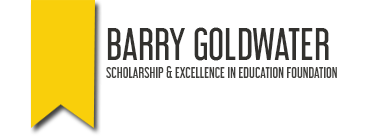Megan Behnke, Chemistry
St. Olaf College
2015 Goldwater Scholar
Is it a wonder why someone who grew up playing outside in Southeast Alaska developed a strong connection to the outdoors and a love of science? Megan Behnke was attracted to the logic and elegance of chemistry in this natural environment. This interest was cultivated in her first two years at St. Olaf College in Northfield, MN, where she participated in a biophysical chemistry research program with Dr. Keir Fogarty. Megan’s love of the outdoors nagged at her and she didn’t see herself spending all her time in a traditional laboratory setting. Serendipity intervened when Megan spoke with Dr. John Schade who led a research program, The Polaris Project, in Arctic biogeochemistry. Through this program, Megan spent two summers discovering and exploring her passion in science: the photochemistry of dissolved organic carbon released from permafrost. She reports that during her “magical” experience in Siberia with The Polaris Project she “stumbled into what [she] wanted to do.” Megan presented her work at the American Chemical Society National Meeting in March 2015, where she was the only undergraduate speaker in the Natural Organic Matter in the Environment symposium.
Growing up near the ocean promoted an interest in oceanography, which Megan explored through the Semester at Woods Hole Oceanographic Institution Program during her senior fall. Megan studied how iron melting out of Greenland glaciers affects ocean chemistry in the North Atlantic under the direction of Drs. Matthew Charette and Fiamma Straneo, and took graduate level courses.
Megan reflects that her three research experiences in biophysical chemistry, biogeochemistry and oceanography provided decreasing levels of direction and increasing autonomy. Her first project was quite structured and largely driven by the professor’s research questions. The Polaris Project was less structured and Megan worked with her mentors to formulate and refine her research questions. At Woods Hole, Megan was able to frame and develop her research questions and methods, helping her grow into an independent scientist.
Megan was honored with a Goldwater Honorable Mention in 2014 and named a Goldwater Scholar in 2015. The recognition from the Goldwater Foundation helped pave the way for Megan when contacting potential graduate advisors, and inspired her to apply to an NSF GRFP grant. She reports that “receiving the Goldwater strengthened [her] resolve to pursue research,” and she is grateful to be “moving forward with this vote of confidence from such a prestigious organization.” She is planning to work for a year in Alaska combining field and lab work before going to graduate school.

